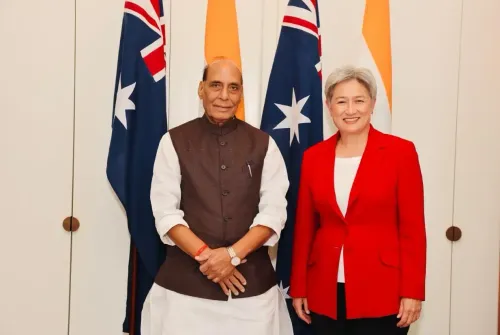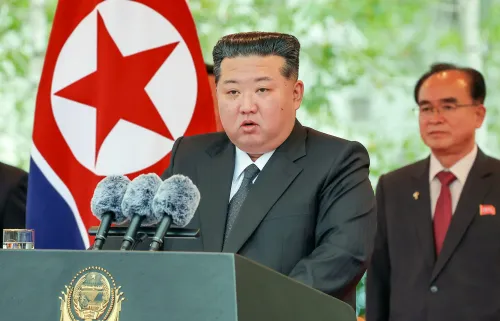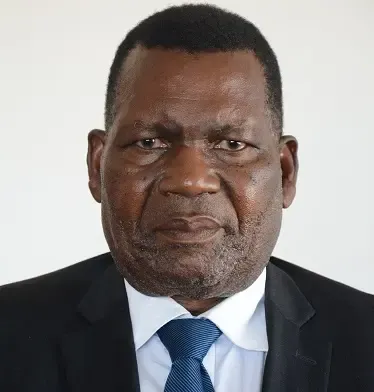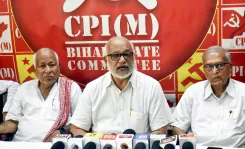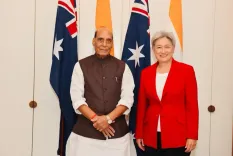When Will the New French PM Be Appointed? Lecornu Shares Insights
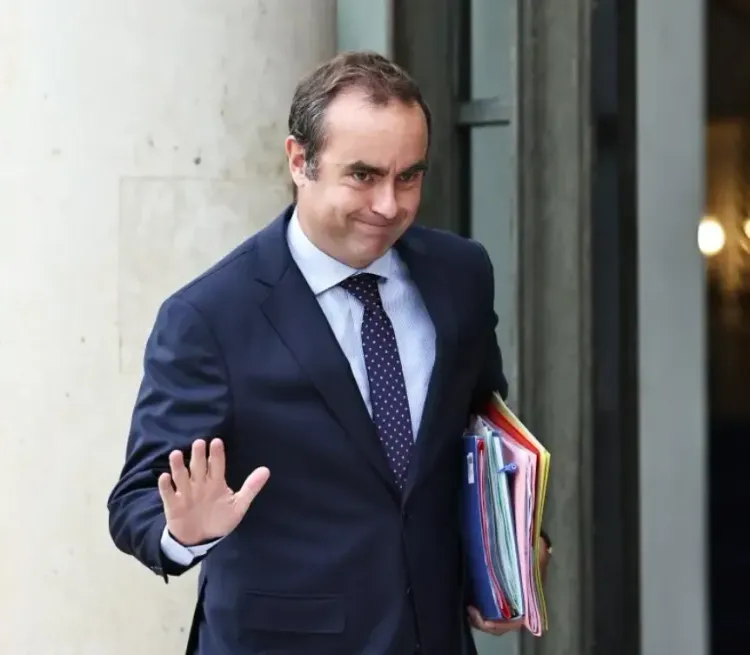
Synopsis
Key Takeaways
- New Prime Minister expected to be appointed within 48 hours.
- Political tensions are rising in France.
- Budget deficit target set below 5 percent.
- Pension reform discussions need to resume.
- Final consultations ongoing for new government formation.
Paris, Oct 9 (NationPress) The outgoing French Prime Minister Sebastien Lecornu has indicated that President Emmanuel Macron is anticipated to appoint a new prime minister within the next 48 hours.
"I believe a way forward is achievable," Lecornu shared with France 2 on Wednesday evening (local time), adding that the existing circumstances enable the president to make the appointment.
"It's his responsibility to carry out the final consultations," he remarked.
In light of demands from opposition parties for Macron to call for early presidential elections to resolve the political stalemate, Lecornu emphasized that it was "not the right moment to replace the president." He noted that Macron would address the public "at the appropriate time."
Lecornu also tackled several critical policy matters, asserting that a "solution must be found" to resume discussions on pension reform. He cautioned that halting the reform could result in a financial loss of at least 3 billion euros (around 3.5 billion US dollars) by 2027, according to reports from Xinhua news agency.
On the topic of the draft budget for 2026, Lecornu stated it might be presented to the cabinet next Monday. He acknowledged that the plan "will have its flaws" and will necessitate considerable debate.
Lecornu tendered his resignation on Monday, just a month after being appointed by Macron, and a day after revealing part of his cabinet lineup.
He emphasized in a statement the collective "determination" among political entities to finalize a budget "before December 31."
These comments came as President Macron granted him until Wednesday evening to conduct "final negotiations" regarding the formation of a new government.
He reiterated that the target for the public deficit must remain below 5 percent in the upcoming budget, specifying a range of "between 4.7 percent and 5 percent on a final basis," as reported by Xinhua News Agency.
On Tuesday, he met with centrist and right-wing politicians and planned to continue discussions on Wednesday with representatives from left-wing parties.
Lecornu, who was appointed earlier last month, resigned on Monday, a day after unveiling a cabinet lineup that was nearly identical to its predecessor, which received significant backlash across the political spectrum.
French President Macron accepted his resignation on Monday morning, shortly after Lecornu disclosed the initial names of his government, as reported by Euro News.
After revealing his cabinet, Lecornu faced criticism from both his allies and the opposition. The conservative Republicans party voiced outrage over the reappointment of France's former Economy Minister Bruno Le Maire as Defence Minister, according to various reports.
On Sunday, Lecornu unveiled the cabinet, which featured Bruno Le Maire, who had previously served as French Economy Minister from 2017 to 2024, now appointed as Defence Minister, while Roland Lescure was designated as France's Economy Minister. French Foreign Minister Jean-Noel Barrot retained his position. Interior Minister Bruno Retailleau and Justice Minister Gerald Darmanin also maintained their roles, as reported by Xinhua News Agency.
The Culture Minister Rachida Dati continued to hold his post. The French presidency announced a total of 18 names, comprising 16 ministers and two delegated ministers.
Following the cabinet announcement, National Rally (RN) leader Jordan Bardella criticized the appointments, stating on social media that the new cabinet merely signifies continuity from the previous government.
On September 9, President Macron named then-Defence Minister Sebastien Lecornu as the new Prime Minister. Lecornu, aged 39, served as Defence Minister for over three years and is regarded as a close ally of Macron.
Unlike previous delays in appointing a new Prime Minister, Macron quickly designated Lecornu last month, indicating a pressing need to stabilize the political and economic landscape.
This appointment was made one day after Bayrou and his cabinet were dismissed in a parliamentary confidence vote regarding his proposal to decrease public spending. Subsequently, Bayrou submitted his resignation.

